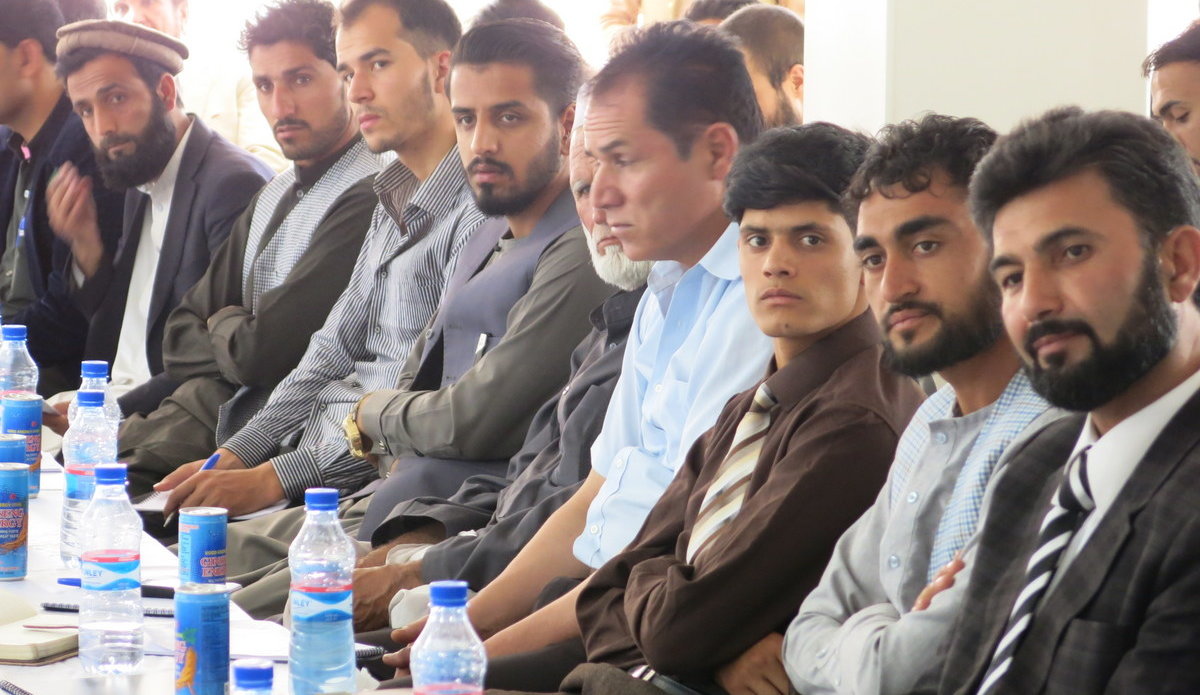Youth underscore their key role in preventing violent extremism during UN-backed event
KABUL - Young people should be at the forefront of preventing and responding to violent extremism, said participants at a UN-backed youth event held in Kabul.
More than 80 youth, government officials, academics and religious scholars, met in Kabul’s District 9 to speak together, share perspectives and find solutions to some of the pressing issues affecting Afghanistan’s young people, including sectarianism, discrimination and violent extremism. Participants underscored the power of young people to shape Afghanistan’s future, as well as overcome its challenges.
The dialogue was first in a series of planned community discussions amongst the youth and the women in five urban districts of Kabul who are supported by UNAMA under a Local Peace Initiative project on ‘Promoting Social Cohesion’. The project strengthens the role of communities in fostering peaceful co-existence and tolerance in order to prevent discrimination, sectarianism, radicalization and violent extremism in the districts of Kabul City.
“Let us focus on our commonalities to achieve development and secure the well-being of our people and community,” said university lecturer, Tawab Amiri. He urged the youth to unite and reject divisions based on ethnicity or social prejudices.
Fawad Azimi described how his ‘Youth Community’ organization is rallying peers across Kabul to join in their activities. “We work with other youth groups to build cohesion and to create communities that are free from violence and prejudices,” said Azimi.
The Youth Community brings together young women and men of District 9, for the first time, under one cause. Similar youth communities and women councils are being strengthened in pilot districts with the support of district authorities and UNAMA. Inter-district dialogues are also being organized, with UNAMA’s support, to increase shared commitment in addressing issues fueling extremism. In partnership with Norwegian Refugee Council, select women and youth advocates are being trained on conflict resolution to complement dialogue with concrete skills to peacefully resolve disputes and conflict in the districts that could lead to discrimination, a sense of injustice, and marginalization.
Deputy Provincial Governor Hanifa Girowal added her voice in advising young people to use dialogue and not violence. “Your initiatives as young people should benefit all people of Afghanistan,” she said.
Afghanistan has one of the largest youth populations in the world. According to some estimates, three-quarters of the country’s population is below the age of 30. In spite of the recognition of youth as an invaluable asset in advancing development and shaping Afghanistan’s future, a large number are impoverished, illiterate, marginalized and prone to violent extremism, particularly rural youth.
During the interactive and lively meeting, young participants reiterated their desire to take the lead on decisions and matters concerning their lives. In closing, other youth were urged to create ‘Youth Communities’ in their localities to advocate for peaceful co-existence, unity and tolerance.
Preventing violent extremism is a commitment and obligation under the principles and values enshrined in the Charter of the United Nations, the Universal Declaration of Human Rights, and other international human rights instruments.
Violent extremism undermines peace and security, human rights, sustainable development, rule of law and humanitarian action. Both the United Nations General Assembly and the Security Council have acknowledged that violent extremism had reached a level of threat that requires concerted action beyond law enforcement, military, or security measures.
The Government of Afghanistan has stepped up to the United Nations’ call for action by launching its ‘National Strategy for De-Radicalization’ which recognizes extremism as a major challenge facing the country and seeks to address the issue.
 UN
UN







